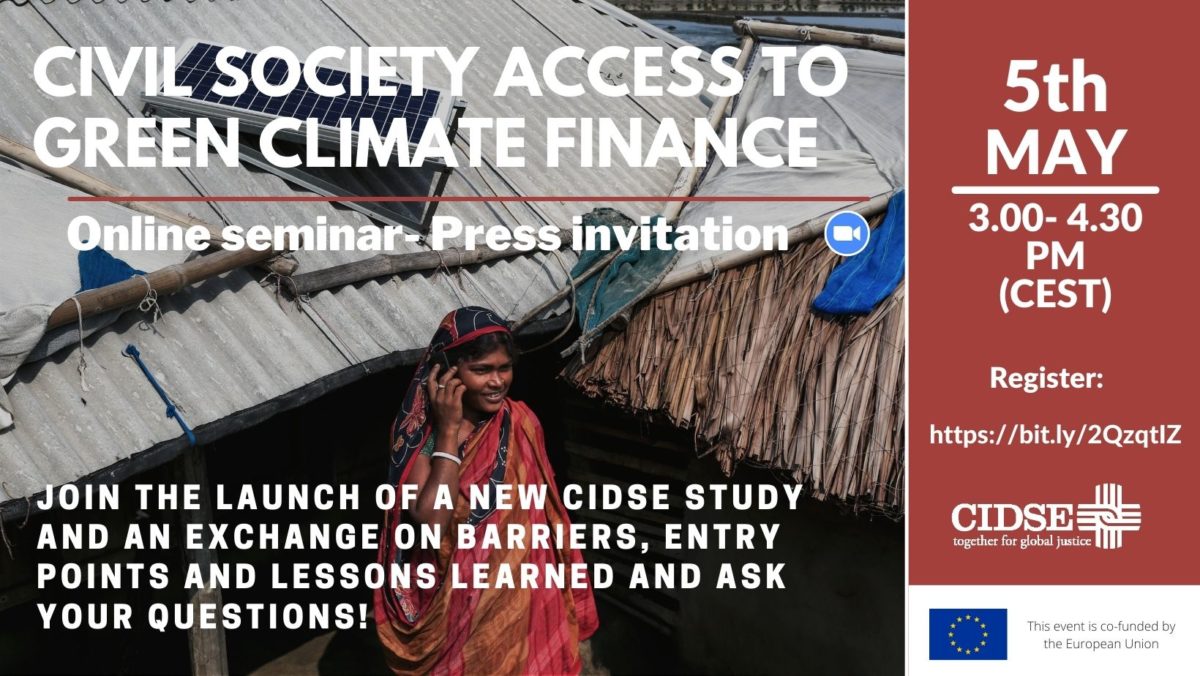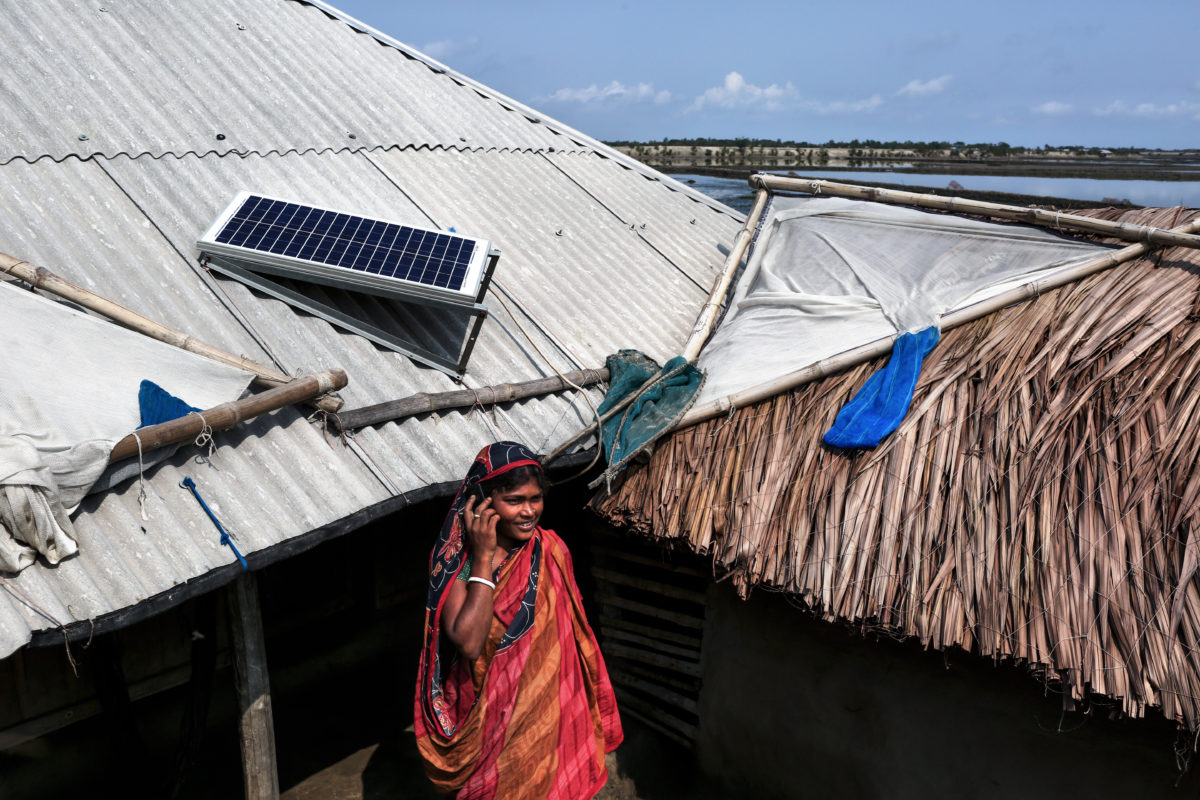With the aim of strengthening access to climate finance, CIDSE presents a new study on the analysis of the Green Climate Fund policies, which includes the obstacles and recommendations for its effective implementation and transformation. The study will be discussed in an online seminar organised by CIDSE taking place on 5 May.
The report “Improving civil society’s limited access to the green climate fund”, seeks to show how access to the Green Climate Fund could be beneficial for Civil Society Organisations (CSOs) in order to finance adaptation and mitigation projects in their region, especially in the global South. The study however also reveals the existent barriers to the access to GCF funds, such as CSOs accreditation, complicated project approval processes, lack of local rootedness, weak national consultation processes, among others.
The report demonstrates that there is a need for reform, and CSOs are in a unique position to contribute by providing critical feedback while demonstrating innovative project solutions, thus, acting as a catalyst for transformation that combine high climate ambitions, SDG co-benefits, gender sensitivity, and locally led action.
Furthermore, as stressed by Lydia Machaka, Climate Justice and Energy Officer at CIDSE and one of the editors of the study: “Real transformation for building resilience and adaptive capacities for most vulnerable groups on the ground will only occur when the Green Climate Fund (GCF) resources are easily made accessible to civil society organizations and when they are designed with them and for them as key stakeholders”. The report suggests CSOs should increase their awareness around the GCF and its capacities in order to increase their participation and input. On the other hand, the study encourages the Fund to implement reforms that will create a more enabling framework that benefits CSOs to fulfil their mission of transformational change-making.
Climate finance is a key to fight climate change
Finance is considered to be the enabling tool that would make the Paris Agreement effective for everybody, but most importantly, it is the key to vulnerable countries to enhance and fully implement their national climate action plans (also known as NDCs). International climate finance can help to close the emissions gap and thereby reinforce trust between parties in order to increase ambition and to succeed in the upcoming climate negotiations.
The Green Climate Fund (GCF) is generally considered as the flagship fund for providing climate finance; until now, a total of 154 developing countries are eligible for GFC funding and by 2020, 103 Accredited Entities had been approved to apply for funding, most of them International Implementing Entities. However, direct access for small scale projects in developing countries to National or Regional Implementing Entities is still very limited.
As the CSOs represent the majority of accredited observers (296 out of 453), their work on influence GCF funding priorities and policies is important; nonetheless their demand for better access to projects has not yet been one of the top advocacy priorities. Throughout this paper, the authors seek to encourage CSO networks in the Global North with ties in the Global South, to facilitate a strategic dialogue on what to expect from the Fund in terms of climate finance and provide capacity-building support.
More information & press invitation
The study was commissioned by CIDSE to Thomas Hirsch, Climate & Development Advice and it will be presented in an online seminar on May 5th at 3:00 pm (CEST), with the participation of specialists on the topic. Journalists are welcome to attend the event and ask questions to the speakers. Interviews with the author of the study and/or CIDSE representatives can also be arranged.

Press contact: Valentina Pavarotti, CIDSE Communications Manager: pavarotti(at)cidse.org

